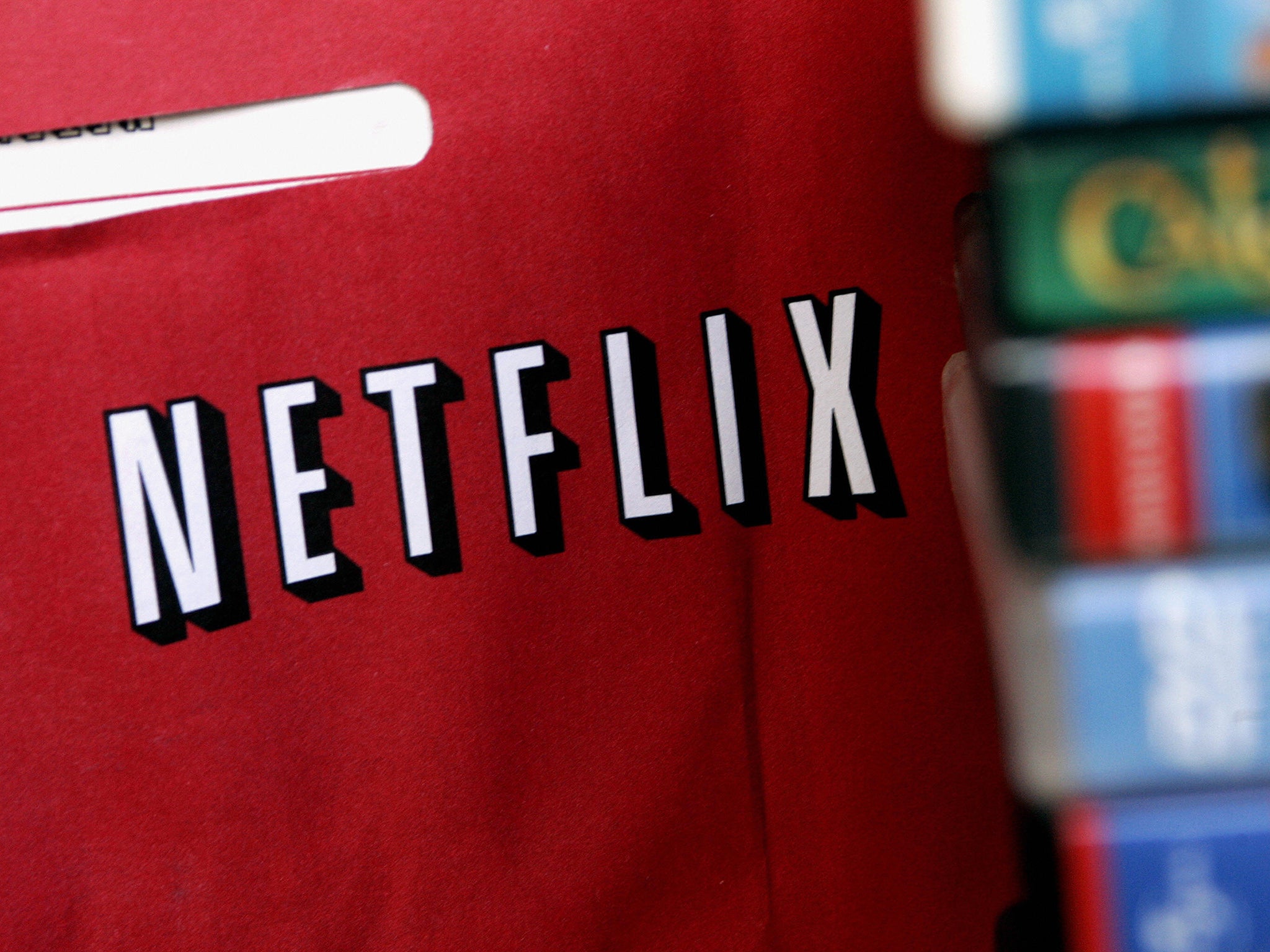Netflix admits it deliberately slows down video streams for some customers
Customers watching on the AT&T and Verizon networks have their streams capped to just 600 Kbps

Your support helps us to tell the story
From reproductive rights to climate change to Big Tech, The Independent is on the ground when the story is developing. Whether it's investigating the financials of Elon Musk's pro-Trump PAC or producing our latest documentary, 'The A Word', which shines a light on the American women fighting for reproductive rights, we know how important it is to parse out the facts from the messaging.
At such a critical moment in US history, we need reporters on the ground. Your donation allows us to keep sending journalists to speak to both sides of the story.
The Independent is trusted by Americans across the entire political spectrum. And unlike many other quality news outlets, we choose not to lock Americans out of our reporting and analysis with paywalls. We believe quality journalism should be available to everyone, paid for by those who can afford it.
Your support makes all the difference.Netflix has long presented itself as a champion of unfettered access to Internet content. But those claims are ringing a little hollow after the company admitted Thursday that it deliberately slows down its streams for customers watching on the cellular networks of AT&T and Verizon.
Normally, Netflix subscribers need at least a 500 Kbps connection just to open a streaming TV show or film. The service recommends a connection that's at least six times as fast for normal viewing at standard definition.
But for more than five years, Netflix has capped its video stream to just 600 Kbps for AT&T and Verizon's wireless customers, the company told the Wall Street Journal Thursday. The reason? Well, because video uses up a lot of data, Netflix subscribers risked blowing past their monthly caps without the throttling. Not only does going over your limit result in sometimes stiff penalties, but it also may discourage users from continuing to watch Netflix. The throttling therefore helps ensure that consumers on AT&T and Verizon don't overuse their data -- and that viewers' binge watching habits won't get cut short.
Netflix has been critical of the carriers' own approach to data speeds. In 2014, Netflix complained about congestion on Verizon's network that it claimed prevented customers from getting a smooth experience.
"As an ISP, you sell your customers a connection to the Internet," Netflix wrote to Verizon. "To try to shift blame to us for performance issues arising from interconnection congestion is like blaming drivers on a bridge for traffic jams when you're the one who decided to leave three lanes closed during rush hour."
Verizon always insisted that Netflix's claims were misleading, and threatened to sue.
In a blog post Thursday night, Netflix said its 600 Kbps speed cap applies to all mobile networks globally. But its business deals with some carriers complicate this picture. For example, Netflix participates in a T-Mobile program known as Binge On that exempts Netflix from user data caps entirely, allowing T-Mobile subscribers to watch as much Netflix as they like (albeit also at a lower quality to conserve bandwidth).
Netflix also said that it plans to roll out a set of tools, likely in May, that will allow users to fine-tune how Netflix uses their cellular data.
"The data saver feature will provide members with more control over their data usage when streaming on mobile networks," wrote Anne Marie Squeo, a Netflix spokesperson.
Netflix's admission somewhat undermines its efforts to shape Internet policy. The dispute with Verizon helped draw more attention to Internet providers' broadband practices, and it became one more flashpoint in the fight over net neutrality. At the time, Netflix advocated for strong rules that would prevent Internet providers from slowing down its content. But it now appears that even as the company asked regulators to ban throttling by carriers, it had no qualms about reserving that tactic for itself.
"We're outraged to learn that Netflix is apparently throttling video for their AT&T customers without their knowledge or consent," said Jim Cicconi, a senior executive at AT&T.
© Washington Post
Join our commenting forum
Join thought-provoking conversations, follow other Independent readers and see their replies
Comments